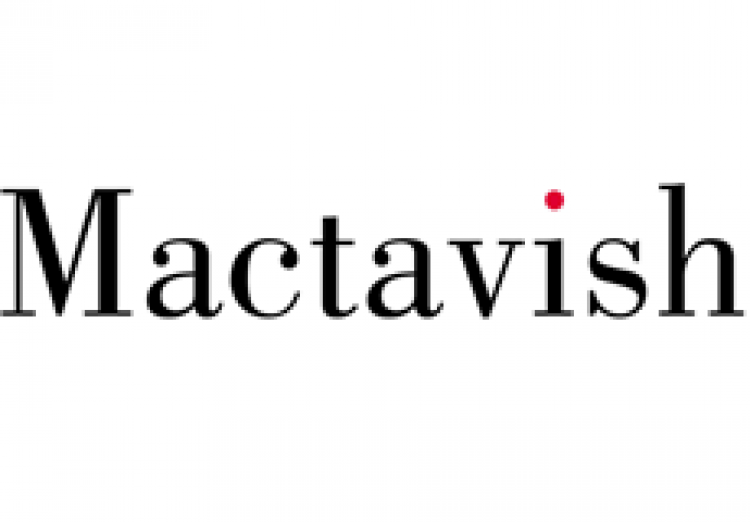Many policyholders underestimating Insurance Act reforms, warns Mactavish

The Insurance Act will come into force in just over a year, leading to far-reaching changes in the rules governing commercial insurance contracts. According to insurance governance specialist Mactavish, most risk analysis standards used today will fall foul of the new law – yet many policyholders are still underestimating the challenges. Bruce Hepburn, Paul Spencer CBE and David Hertzell, all of Mactavish, say companies need to invest time – or face the consequences.
It is just over a year until the Insurance Act 2015 will come into force. Yet we are concerned that, although the changes are positive, a significant majority of UK corporate policyholders have yet to grasp the significance of the compliance implications and the associated challenge of complying in time.
The Act is hugely positive for policyholders as it limits insurers’ ability to reject claims for breach of conditions irrelevant to the loss suffered and it will make the remedies for non-disclosure more proportionate.
In return, policyholders will need to make a more concerted effort to assist the underwriter in understanding the risk and this is where the challenges lie. In fact, the current risk analysis standards practised by most boards and insurance buyers today, including many of the largest companies in Britain, will fall substantially short of the new statutory regime being imposed upon them imminently. What’s more, we would warn boards that investors will not be sympathetic if businesses suffered losses and their insurance did not respond because they fell foul of their incoming statutory duties.
Mactavish worked closely with the law commission in the drafting of the law, and so we are keenly aware that the compliance work required to be in line with the incoming new statutory regime is by no means inconsiderable. Indeed, it is highly complex and each corporate case is entirely bespoke. Our concern is that if policyholders carry on blindly without a robust analysis of their insurable risks and processes, then it is without doubt that they will fail to meet the standards of the new Act and will not get much sympathy from the courts.
The core imperative at the heart of the Insurance Act – which received Royal Assent on 12 February 2015 - is the professionalisation of the way in which businesses, both large and small, arrange their contracts with insurers. Corporate policyholders will have to demonstrate a comprehensive understanding of their risk as part of the new ‘duty of fair presentation’. From Summer 2016, information provided to insurers must be clear and accessible, material facts known to senior management and the insurance team must be revealed and businesses must conduct reasonable searches for additional potential risk detail.
Policyholders will therefore need to invest time: understanding and mapping their current information gathering processes, considering the new burdens of the Act (especially around ‘reasonable search’), and then developing enhanced processes to meet the specifications of the Act. For many Airmic members this will entail building on and adapting the current processes they have been enhancing over many years.
Insureds should pay particular concern to those policies where the business would want to recoup costs rather than replace assets, such as Business Interruption, Professional Indemnity or Directors’ and Officers’ Liability. Collecting relevant information for the insurers for these policies is likely to require more detailed understanding of the risk exposures, and what the business would want to do if the worst should happen, than can be ascertained by sending out standard questionnaires alone.
As the Act moves the focus on disclosure standards, from just the quality of the information provided to the quality of the information and the process for gathering the information, it is going to create challenges for all businesses. Furthermore, quality will be judged with respect to business size and complexity, not market practices, placing a more onerous burden on lots of Airmic members.
Although there is much in the new Act to benefit policyholders their obligations regarding disclosure are now set out more clearly. It is likely that policyholders’ systems and processes will be examined in any future coverage disputes and insurance buyers need to be prepared.
Bruce Hepburn is chief executive of Mactavish; Paul Spencer CBE is deputy chairman and non-executive director at Mactavish; and David Hertzell is special insurance governance adviser for Mactavish as well as a member of the Airmic board.
Mactavish will be at the 2015 Airmic conference in Liverpool at stand 102. If you are at the event and have concerns regarding the incoming Act, their team of insurance governance experts would be delighted to have an informed and independent conversation with you and advise on the key imperatives your company will need to address. Alternatively, contact them directly by calling their Mactavish expert team on +44 (0)208 834 1021 or email tommiskin@mactavishgroup.com.
.png)
Bruce Hepburn

David Hertzell

Paul Spencer
